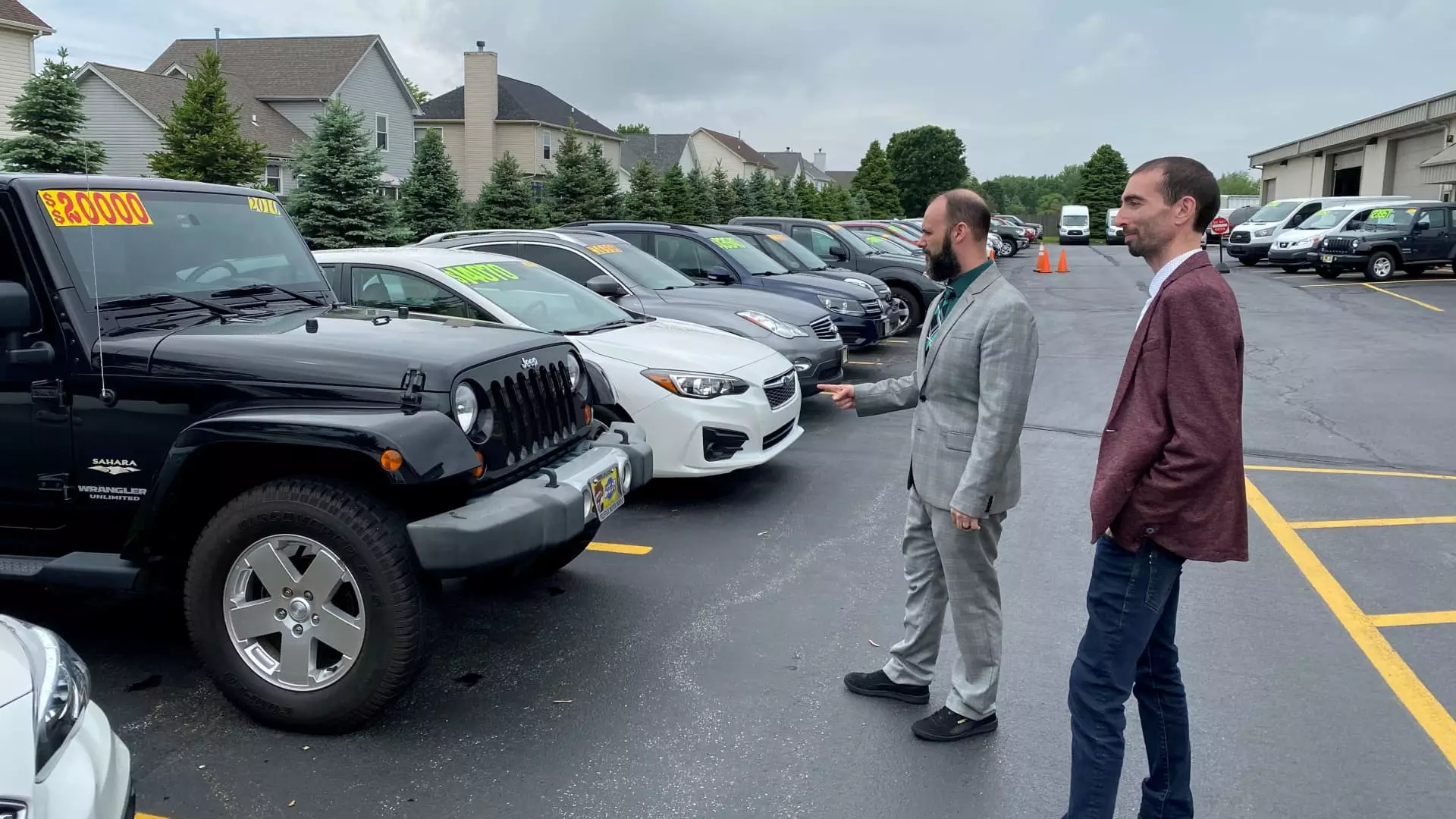As we move toward 2025, U.S. car dealerships find themselves at a crossroads, exhibiting “renewed optimism” within the industry, according to recent insights from Cox Automotive. This rising sense of hope is primarily attributed to political changes following the election of President Donald Trump and favorable economic indicators such as interest rates and automaker-backed sales incentives. However, amidst this optimism, a specter of uncertainty looms, particularly regarding the electric vehicle (EV) market as highlighted in Cox’s “Q4 2024 Dealer Sentiment Index.”
The American automotive landscape has long been influenced by a delicate interplay of political, economic, and consumer dynamics. Following the recent election cycle, dealers initially expressed high hopes for the future. The outlook for the overall car market reflects a significant jump in confidence, rising from an index score of 42 to 54 in just one quarter. It’s essential to note that an index score above 50 suggests that more dealers view current conditions as strong rather than weak. This indicator presents a sharp recovery from the more pessimistic views observed in previous years, which reflected concerns around the pandemic and its impact on the industry.
Despite the generally positive outlook, an alarming trend has surfaced regarding the sale of electric vehicles. The sentiment concerning EVs has declined, with a notable majority of dealers anticipating further decreases in sales in the coming quarter. As Jonathan Smoke, the Chief Economist at Cox, pointedly notes, apprehensions are mounting that the new administration’s policies may not favor an already vulnerable EV segment.
The apprehension regarding EV sales is exacerbated by potential changes in federal funding and tax credits critical in incentivizing consumers to switch to electric vehicles. Under Trump’s administration, there may be a reduction in support for initiatives such as the consumer tax credit of $7,500. Additionally, the possibility of eased fuel regulations raises questions about the commitment to environmental sustainability in the automotive industry. As such, the ongoing disappointment surrounding electric vehicle sales mirrors broader concerns of sustainability overshadowed by fluctuating policies.
Despite the mixed sentiments regarding EVs, car dealerships are witnessing robust stock performance, with publicly traded auto dealer stocks seeing substantial gains in 2024. Companies like AutoNation, Lithia Motors, and Sonic Automotive report stock increases between 15% and 22% this year. Surprisingly, Group 1 Automotive has stood out with an impressive 40% rise, signaling potential confidence in the broader market dynamics, even amid uncertainties surrounding electric vehicles.
This divergence in sentiment highlights a complex reality within the automotive retail landscape. While overall confidence in traditional auto sales is surging, concerns about an upcoming decline in EV enthusiasm serve as a reminder of the unpredictable nature of the market. Dealers are acutely aware that while current pricing trends for both new and used vehicles are favorable, they must navigate the complexities of an evolving market landscape that increasingly favors electric solutions.
Political stability and policy direction are crucial in shaping market perceptions and dealer sentiments. The easing of political uncertainties following the elections has rekindled hope within the dealership community, as 35% of surveyed dealers reported that the changed political climate now impacts their businesses positively. This figure marks a notable decline from previous quarters, suggesting that a renewed sense of stability might pave the way for better business practices moving forward.
As more dealership owners begin to engage with and anticipate potentially favorable economic conditions, the hope for supportive measures, like tax rebates and lower interest rates, becomes a tangible part of their business strategy. Such initiatives could stimulate consumer demand and ultimately transform dealer outlooks, provided that these measures are implemented effectively.
While optimism has returned to U.S. car dealerships as they navigate their path into 2025, an intricate tapestry of challenges persists. Concerns regarding electric vehicle adoption highlight the need for continuous evaluation of market trends against a backdrop of potential policy shifts. As dealers remain cautiously optimistic, understanding the intricate balance of political dynamics, economic principles, and consumer behavior will be essential for thriving in an ever-evolving automotive landscape.

